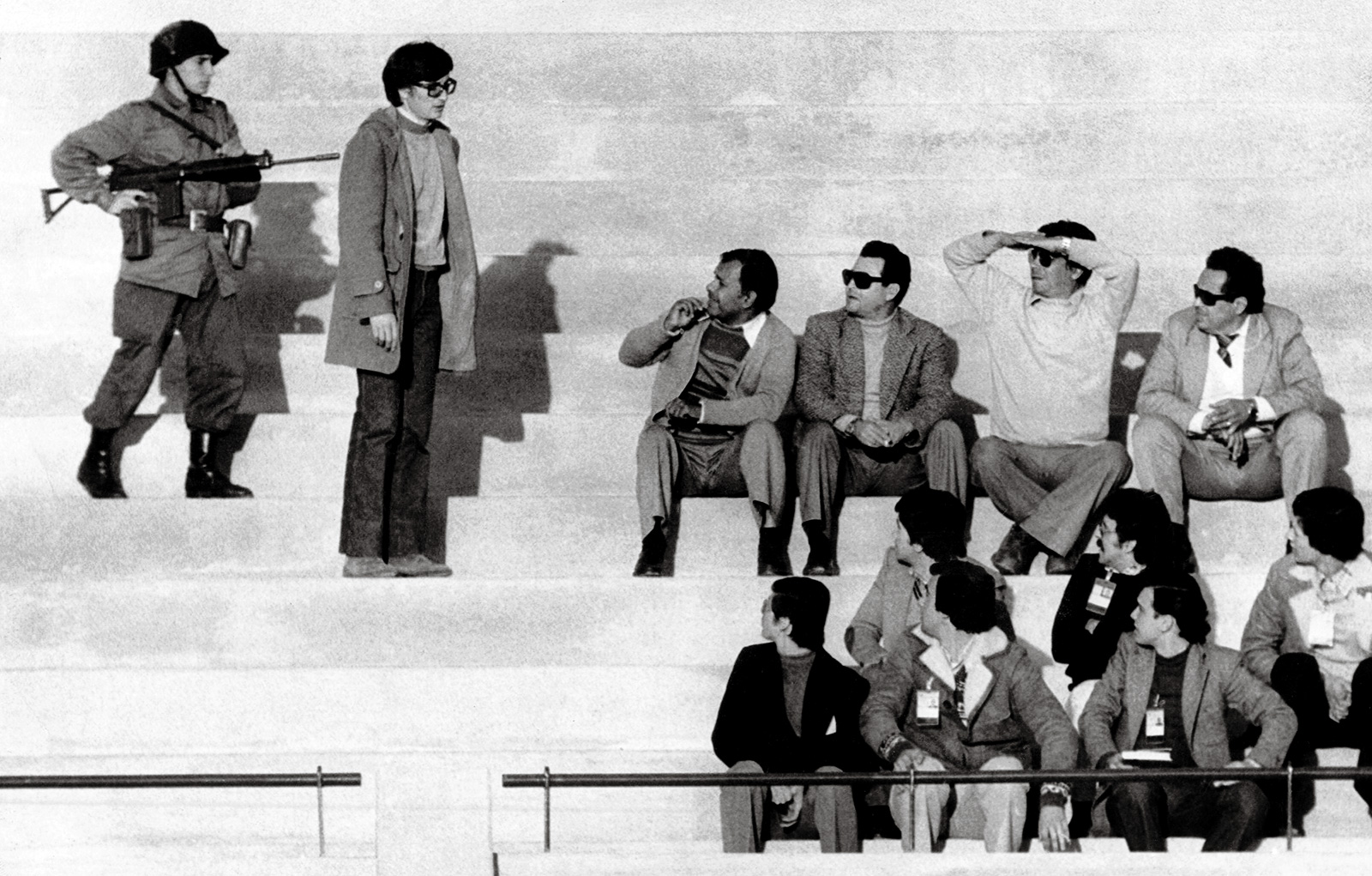Latin America
Related: About this forumArticle I discovered in my files, surprisingly written by ESPN:
While The World Watched
At the same time Argentina hosted the 1978 World Cup, the nation's dictators were waging their "Dirty War" of repression, kidnappings and torture. As the tournament again draws near, ghastly memories are flooding back.

ESPN The Magazine & ESPNFC.com by Wright Thompson
PHOTOGRAPH BY IMAGO/ACTIONPLUS
06/09/14
INSIDE A BUENOS AIRES restaurant named El Cuartito, sky-blue paint covers the walls, along with photographs and banners from important athletes and teams. In the center of the largest wall is a shrine to Diego Maradona, the star of the 1986 World Cup. That title is so important that Maradona, a recovering drug addict, still basks comfortably in a nation's warming love and goodwill. People celebrate the '86 title with vivid street art murals, and with photos and signed jerseys and posters in nearly every place of business, including El Cuartito. The restaurant celebrates civic heroes, which is why one particular omission is jarring. Argentina has won two World Cups, the famous one in 1986 and the other just eight years before, in 1978, when Argentina played host. That team is barely honored at all inside El Cuartito. In the back corner of the main room, as far away from the door as you can get, hang two team photos. That's it. Combined, they're smaller than the Michael Jordan poster on a nearby wall. This is not an isolated oversight. During a 30th anniversary celebration of the '78 team, an event that also served as a memorial for victims of the former military dictatorship's violence, the triple-decked Estadio Monumental looked barren, wide swaths of empty seats swallowing groups of people. Spinetta, one of the most famous Argentine rock stars, played for free after the ceremony and they still couldn't draw a crowd. Nineteen of the 22 players didn't show. It seems odd to an outsider, a soccer-mad nation trying to erase one of its greatest teams, but in Argentina, the scrubbing makes sense. The nation has the highest number of psychologists per capita in the world: This is a country drowning in toxic secrets, including the one about a World Cup it needs to forget.
THE GUARDS SWITCHED the radio to the 1978 World Cup final, tinny speakers blasting full volume: Argentina vs. Netherlands. Political prisoners twisted and fidgeted in the shadows. Norberto Liwski, one of them, struggled to get comfortable. The cells measured 6 feet by 5 feet, each of them holding a half dozen thin, sick people, many of whom wouldn't live through the week. The air stank. Men and women slumped, shoulder to shoulder, stewing in their own urine and feces. Infection ravaged their wounds. They ate rotten meat. The prisoners in the cells were Argentine citizens, tortured by Argentine guards, kidnapped and hidden in secret Argentine jails, imprisoned by a powerful and cruel dictatorship, which managed every detail of this soccer tournament. History would reveal the World Cup to be the apogee of both its power and cruelty.
The national team presented a deep moral conflict. The prisoners argued among themselves, whispering, since guards punished any communication with savage beatings. Some prisoners wanted Argentina to win. They'd cheered for the blue-and-white all their lives. Others, like Liwski, felt rage and sorrow hearing the dictators use the team as another weapon in the war on their own people.
A strong bond had united the prisoners, all of them kidnapped for their political views, held secretly without trial. But now the World Cup divided them. Tension filled Liwski's tiny cell. The game ended, Argentina the winner by a score of 3-1. The guards switched off the radio. For hours, Norberto Liwski heard the laughter and singing of the fans on the street outside. The walls of his cell transformed their joy into his horror. It was June 25, 1978.
More:
http://www.espn.com/espn/feature/story/_/id/11036214/while-world-watched-world-cup-brings-back-memories-argentina-dirty-war?fbclid=IwAR0fe5LLitdOtYEbmJ9dWuqdoVpFrgJ07zSUtEJ8WFeo34o_L7e1xviFSpY
